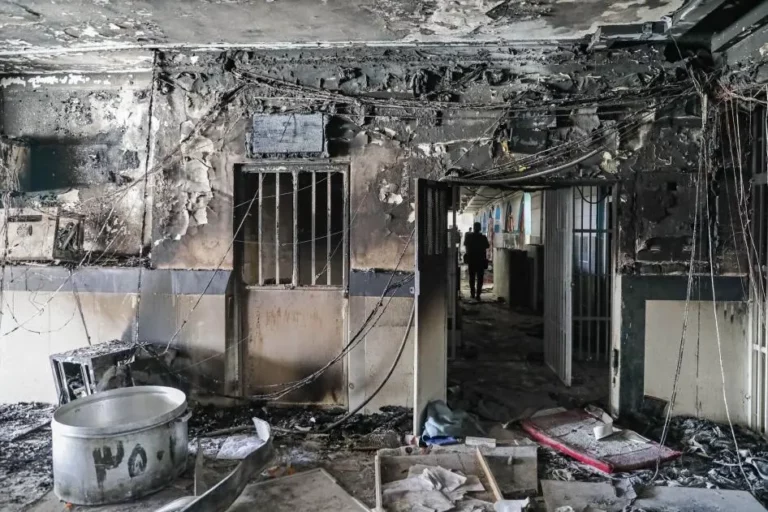 President George W. Bush told the nation Friday that his administration is taking “unprecedented action” to deal with the ailing financial markets.
President George W. Bush told the nation Friday that his administration is taking “unprecedented action” to deal with the ailing financial markets.
“America’s economy is facing unprecedented challenges. We’re responding with unprecedented measures,” Bush said.
Bush said the crisis in the financial system is a pivotal moment in the life of the U.S. economy. He said government intervention is needed to keep the crisis from further damaging the economy.
Bush said he appreciates the willingness of Congress to work with the administration to address the crisis “head-on.”
The president spoke publicly for the third time this week about convulsive developments in the business world.
He was joined on the White House steps outside the Oval Office by Federal Reserve Chairman Ben Bernanke, Treasury Secretary Henry Paulson and Securities and Exchange Commission Chairman Christopher Cox.
The full text of the President’s remarks are below – followed by remarks delivered earlier today by Treasury Secretary Henry Paulson:
THE PRESIDENT: Good morning. I thank Treasury Secretary Hank Paulson, Federal Reserve Chairman Ben Bernanke, and SEC Chairman Chris Cox for joining me today.
This is a pivotal moment for America’s economy. Problems that originated in the credit markets — and first showed up in the area of subprime mortgages — have spread throughout our financial system. This has led to an erosion of confidence that has frozen many financial transactions, including loans to consumers and to businesses seeking to expand and create jobs. As a result, we must act now to protect our nation’s economic health from serious risk.
There will be ample opportunity to debate the origins of this problem. Now is the time to solve it. In our nation’s history, there have been moments that require us to come together across party lines to address major challenges. This is such a moment. Last night, Secretary Paulson and Chairman Bernanke and Chairman Cox met with congressional leaders of both parties — and they had a very good meeting. I appreciate the willingness of congressional leaders to confront this situation head on.
Our system of free enterprise rests on the conviction that the federal government should interfere in the marketplace only when necessary. Given the precarious state of today’s financial markets — and their vital importance to the daily lives of the American people — government intervention is not only warranted, it is essential.
In recent weeks, the federal government has taken a series of measures to help promote stability in the overall economy. To avoid severe disruptions in the financial markets and to support home financing, we took action to address the situation at Fannie Mae and Freddie Mac. The Federal Reserve also acted to prevent the disorderly liquidation of the insurance company AIG. And in coordination with central banks around the world, the Fed has injected much-needed liquidity into our financial system.
These were targeted measures designed primarily to stop the problems of individual firms from spreading even more broadly. But more action is needed. We must address the root cause behind much of the instability in our markets — the mortgage assets that have lost value during the housing decline and are now restricting the flow of credit. America’s economy is facing unprecedented challenges, and we are responding with unprecedented action.
Secretary Paulson, Chairman Bernanke, and Chairman Cox have briefed leaders on Capitol Hill on the urgent need for Congress to pass legislation approving the federal government’s purchase of illiquid assets, such as troubled mortgages, from banks and other financial institutions. This is a decisive step that will address underlying problems in our financial system. It will help take pressure off the balance sheets of banks and other financial institutions. It will allow them to resume lending and get our financial system moving again.
Additionally, the federal government is taking several other steps to address the trouble of our financial markets.
The Department of the Treasury is acting to restore confidence in a key element of America’s financial system — money market mutual funds. In the past, government insurance was not available for these funds, and the recent stresses on the markets have caused some to question whether these investments are safe and accessible. The Treasury Department’s actions address that concern by offering government insurance for money market mutual funds. For every dollar invested in an insured fund, you will be able to take a dollar out.
The Federal Reserve is also taking steps to provide additional liquidity to money market mutual funds, which will help ease pressure on our financial markets. These measures will act as grease for the gears of our financial system, which were at risk of grinding to a halt. They will support the flow of credit to households and businesses.
The Securities and Exchange Commission has issued new rules temporarily suspending the practice of short selling on the stocks of financial institutions. This is intended to prevent investors from intentionally driving down particular stocks for their own personal gain. The SEC is also requiring certain investors to disclose their short selling, and has launched rigorous enforcement actions to detect fraud and manipulation in the market. Anyone engaging in illegal financial transactions will be caught and persecuted [sic].
Finally, when we get past the immediate challenges, my administration looks forward to working with Congress on measures to bring greater long-term transparency and reliability to the financial system — including those in the regulatory blueprint submitted by Secretary Paulson earlier this year. Many of the regulations governing the functioning of America’s markets were written in a different era. It is vital that we update them to meet the realities of today’s global financial system.
The actions I just outlined reflect the considered judgment of Secretary Paulson, Chairman Bernanke, and Chairman Cox. We believe that this decisive government action is needed to preserve America’s financial system and sustain America’s overall economy. These measures will require us to put a significant amount of taxpayer dollars on the line. This action does entail risk. But we expect that this money will eventually be paid back. The vast majority of assets the government is planning to purchase have good value over time, because the vast majority of homeowners continue to pay their mortgages. And the risk of not acting would be far higher. Further stress on our financial markets would cause massive job losses, devastate retirement accounts, and further erode housing values, as well as dry up loans for new homes and cars and college tuitions. These are risks that America cannot afford to take.
In this difficult time, I know many Americans are wondering about the security of their finances. Every American should know that the federal government continues to enforce laws and regulations protecting your money. Through the FDIC, every savings account, checking account, and certificate of deposit is insured by the federal government for up to $100,000. The FDIC has been in existence for 75 years, and no one has ever lost a penny on an insured deposit — and this will not change.
America’s financial system is intricate and complex. But behind all the technical terminology and statistics is a critical human factor — confidence. Confidence in our financial system and in its institutions is essential to the smooth operation of our economy, and recently that confidence has been shaken. Investors should know that the United States government is taking action to restore confidence in America’s financial markets so they can thrive again.
In the long run, Americans have good reason to be confident in our economic strength. America has the most talented, productive, and entrepreneurial workers in the world. This country is the best place in the world to invest and do business. Consumers around the world continue to seek out American products, as evidenced by record-high exports. We have a flexible and resilient system that absorbs challenges and makes corrections and bounces back.
We’ve seen that resilience over the past eight years. Since 2001, our economy has faced a recession, the bursting of the dot-com bubble, major corporate scandals, an unprecedented attack on our homeland, a global war on terror, a series of devastating natural disasters. Our economy has weathered every one of these challenges, and still managed to grow.
We will weather this challenge too, and we must do so together. This is no time for partisanship. We must join to move urgently needed legislation as quickly as possible, without adding controversial provisions that could delay action. I will work with Democrats and Republicans alike to steer our economy through these difficult times and get back to the path of long-term growth. Thank you very much.
Statement by Secretary Henry M. Paulson, Jr. on Comprehensive Approach to Market Developments
Washington, DC– Last night, Federal Reserve Chairman Ben Bernanke, SEC Chairman Chris Cox and I had a lengthy and productive working session with Congressional leaders. We began a substantive discussion on the need for a comprehensive approach to relieving the stresses on our financial institutions and markets.
We have acted on a case-by-case basis in recent weeks, addressing problems at Fannie Mae and Freddie Mac, working with market participants to prepare for the failure of Lehman Brothers, and lending to AIG so it can sell some of its assets in an orderly manner. And this morning we’ve taken a number of powerful tactical steps to increase confidence in the system, including the establishment of a temporary guaranty program for the U.S. money market mutual fund industry.
Despite these steps, more is needed. We must now take further, decisive action to fundamentally and comprehensively address the root cause of our financial system’s stresses.
The underlying weakness in our financial system today is the illiquid mortgage assets that have lost value as the housing correction has proceeded. These illiquid assets are choking off the flow of credit that is so vitally important to our economy. When the financial system works as it should, money and capital flow to and from households and businesses to pay for home loans, school loans and investments that create jobs. As illiquid mortgage assets block the system, the clogging of our financial markets has the potential to have significant effects on our financial system and our economy.
As we all know, lax lending practices earlier this decade led to irresponsible lending and irresponsible borrowing. This simply put too many families into mortgages they could not afford. We are seeing the impact on homeowners and neighborhoods, with 5 million homeowners now delinquent or in foreclosure. What began as a sub-prime lending problem has spread to other, less-risky mortgages, and contributed to excess home inventories that have pushed down home prices for responsible homeowners.
A similar scenario is playing out among the lenders who made those mortgages, the securitizers who bought, repackaged and resold them, and the investors who bought them. These troubled loans are now parked, or frozen, on the balance sheets of banks and other financial institutions, preventing them from financing productive loans. The inability to determine their worth has fostered uncertainty about mortgage assets, and even about the financial condition of the institutions that own them. The normal buying and selling of nearly all types of mortgage assets has become challenged.
These illiquid assets are clogging up our financial system, and undermining the strength of our otherwise sound financial institutions. As a result, Americans’ personal savings are threatened, and the ability of consumers and businesses to borrow and finance spending, investment, and job creation has been disrupted.
To restore confidence in our markets and our financial institutions, so they can fuel continued growth and prosperity, we must address the underlying problem.
The federal government must implement a program to remove these illiquid assets that are weighing down our financial institutions and threatening our economy. This troubled asset relief program must be properly designed and sufficiently large to have maximum impact, while including features that protect the taxpayer to the maximum extent possible. The ultimate taxpayer protection will be the stability this troubled asset relief program provides to our financial system, even as it will involve a significant investment of taxpayer dollars. I am convinced that this bold approach will cost American families far less than the alternative – a continuing series of financial institution failures and frozen credit markets unable to fund economic expansion.
I believe many Members of Congress share my conviction. I will spend the weekend working with members of Congress of both parties to examine approaches to alleviate the pressure of these bad loans on our system, so credit can flow once again to American consumers and companies. Our economic health requires that we work together for prompt, bipartisan action.
As we work with the Congress to pass this legislation over the next week, other immediate actions will provide relief.
First, to provide critical additional funding to our mortgage markets, the GSEs Fannie Mae and Freddie Mac will increase their purchases of mortgage-backed securities (MBS). These two enterprises must carry out their mission to support the mortgage market.
Second, to increase the availability of capital for new home loans, Treasury will expand the MBS purchase program we announced earlier this month. This will complement the capital provided by the GSEs and will help facilitate mortgage availability and affordability.
These two steps will provide some initial support to mortgage assets, but they are not enough. Many of the illiquid assets clogging our system today do not meet the regulatory requirements to be eligible for purchase by the GSEs or by the Treasury program.
I look forward to working with Congress to pass necessary legislation to remove these troubled assets from our financial system. When we get through this difficult period, which we will, our next task must be to improve the financial regulatory structure so that these past excesses do not recur. This crisis demonstrates in vivid terms that our financial regulatory structure is sub-optimal, duplicative and outdated. I have put forward my ideas for a modernized financial oversight structure that matches our modern economy, and more closely links the regulatory structure to the reasons why we regulate. That is a critical debate for another day.
Right now, our focus is restoring the strength of our financial system so it can again finance economic growth. The financial security of all Americans – their retirement savings, their home values, their ability to borrow for college, and the opportunities for more and higher-paying jobs – depends on our ability to restore our financial institutions to a sound footing.
(YWN Desk – NYC)










